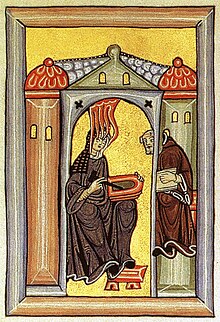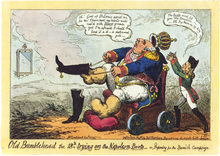


Bear's grease was a popular treatment for men with hair loss from at least as early as 1653 until about the First World War. The myth of its effectiveness is based on a belief that as bears are very hairy, their fat would assist hair growth in others.[1] Nicholas Culpeper, the English botanist and herbalist wrote in 1653, in his The Physician's Library, "Bears Grease staies [stops] the falling off of the hair."[1] Hildegard of Bingen (1098–1179), Benedictine mystic, composer and woman of letters, also recommended the use of the substance in her Physica (repeated in her Causae et Curae).[2] A number of cosmetics companies sold bear's grease, and it was a trademark of Atkinsons of London, who sold "Bears Grease Pomade". In the early 1880s in Arkansas, an ell of bear grease, formed from the hide from the head and neck of a deer, was a standard medium of exchange.[3]
- ^ a b "Developing Treatments" (PDF). Museum of the Royal Pharmaceutical Society. Retrieved 27 June 2014.
- ^ von Bingen, Hildegard. (1998). Physica. Translated by Priscilla Throop. Rochester: Healing Arts Press. p. 209. ISBN 978-1-59477-775-2.
- ^ Smith, KG, Clark, JD, Gipson, PS (1990). History of black bears in Arkansas: over-exploitation, near elimination, and successful reintroduction (PDF). Proceedings of the Tenth Eastern Workshop on Black Bear Restoration and Management. 10:5–14.